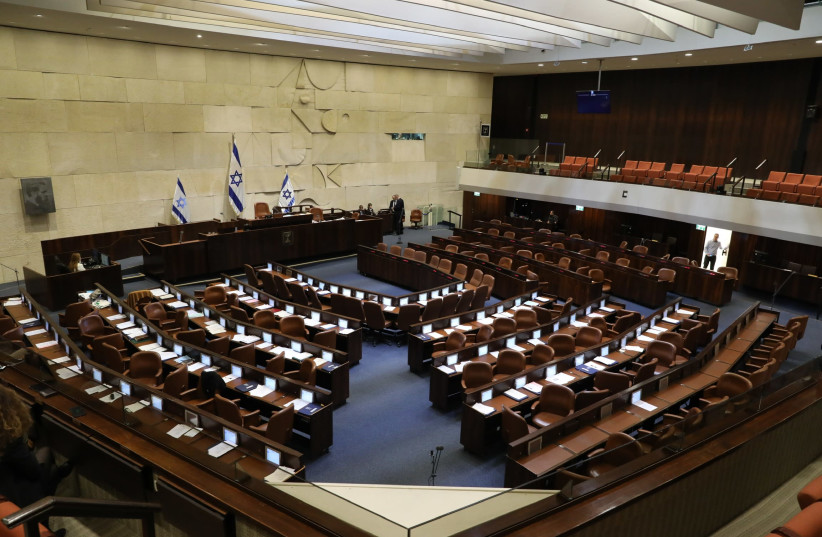The bill to revoke Israeli citizenship or residency from convicted terrorists receiving stipends from the PA became law when it passed its second and third readings on Wednesday by a vote of 94-10.
The bill had received wide bipartisan support during the legislative process, with some opposition from Arab parties.
"There is no more just law than this – the reality in which a resident or citizen of the State of Israel takes a weapon, kills and then receives a salary from the Palestinian Authority is distorted."
Ze'ev Elkin
"There is no more just law than this – the reality in which a resident or citizen of the State of Israel takes a weapon, kills and then receives a salary from the Palestinian Authority is distorted," said National Unity MK Ze'ev Elkin said. "There is no reason for such a person to remain a resident or citizen of the State of Israel, enjoy economic benefits, and then be released from prison and become a hero of the Palestinian Authority."
“There is no more just law than this. The reality in which a resident or citizen of the State of Israel takes a weapon, kills and then receives a salary from the Palestinian Authority is distorted,” said National Unity MK Ze’ev Elkin. “There is no reason for such a person to remain a resident or citizen of Israel, enjoy economic benefits, then be released from prison and become a hero of the Palestinian Authority.”
Opposing the law, Ta’al MK Ahmad Tibi said, “The contract between a state and a citizen is citizenship, but the sense of Jewish superiority of a large part of this house says that citizenship is a contract between the state and a citizen – only for Jews. An Arab who commits a crime is a citizen on parole; a Jew who commits the same offense or a more one is not even considered for citizenship denial.”
How does the law strip a terrorist of Israeli citizenship?
The law reasons that compensation from the PA to a terrorist creates an authoritative relationship between the two, thereby allowing such terrorists to be stripped of citizenship and deported to PA territories in the West Bank or Gaza Strip.

The law read, “Many who hold Israeli citizenship or residency actually receive monthly salaries from the Palestinian Authority as wages and compensation for committing acts of terrorism. These salaries gradually increase with prison-time seniority.”
The process to revoke citizenship is initiated by the interior minister, who must apply within 14 days of a conviction. Then, the justice minister has seven days to approve the revocation, after consultation with an advisory committee. The judiciary then has another 30 days to respond.
A related bill to revoke the citizenship and deport the families of terrorists was approved in a preliminary Knesset reading on Wednesday.
The bill would be implemented in cases in which the terrorist’s family was proven to support, encourage or had foreknowledge of a terrorist act.
Critics have argued that the bill is disproportionate and targets innocent people. Punishment for the act of another, they say, would constitute collective punishment.
Likud MK Hanoch Dov Milwidsky, who introduced the bill after being sworn into office in November, argued, “Every terrorist needs to know that when he goes on a terrorist attack, he doesn’t come back alive, and that he is ruining his family.
"Every terrorist needs to know that when he goes on a terrorist attack – he doesn't come back alive, and that he is ruining his family."
Hanoch Milwidsky
“A system of incentives, honor and money works in favor of the families of the terrorists,” he said. “When a family knows that sending a family member to carry out an attack is not something that will increase the price only for the victim, but will harm the entire family, this will deter the perpetrators and their families.”
